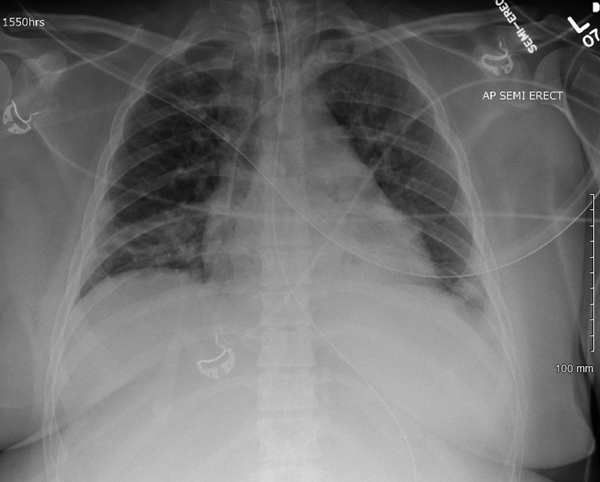Volume 21, Number 5—May 2015
Letter
Enterovirus D68–Associated Acute Respiratory Distress Syndrome in Adult, United States, 2014
Figure

Figure. Chest radiograph obtained (with portable machine) of semirecumbent adult patient with enterovirus D68–associated acute respiratory distress syndrome on hospital day 3.
Page created: April 19, 2015
Page updated: April 19, 2015
Page reviewed: April 19, 2015
The conclusions, findings, and opinions expressed by authors contributing to this journal do not necessarily reflect the official position of the U.S. Department of Health and Human Services, the Public Health Service, the Centers for Disease Control and Prevention, or the authors' affiliated institutions. Use of trade names is for identification only and does not imply endorsement by any of the groups named above.